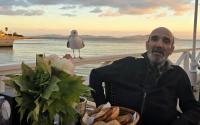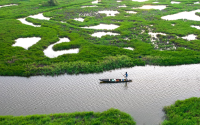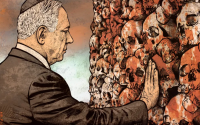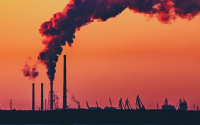Common Dreams / Published on Monday, May 29, 2006 by the Inter Press ServiceBrian Conley and Isam Rashid
Guns have come to be seen in Iraq as a need second only to food.Under Saddam Hussein possession of weapons was highly regulated. But after the invasion of Iraq, the military collapsed and many armouries and ammunition dumps were left unprotected. In an environment of a lack of security, these came to supply a growing appetite for guns. To begin with people bought guns -- or took those discarded on the streets -- as a defence against the eruption of lawlessness after the fall of Baghdad. Recently, after the bombing of the al-Askariyah shrine in Samarra in February this year, a wave of reprisal killings drastically increased the desire of each Iraqi family to have at least one gun. "I think it is important for every Iraqi to have a weapon to protect himself and his family," Abu Hasan, a weapons merchant in Baghdad told IPS. "There is no security at all in Iraq now and we have no real government to protect us. The occupation forces protect themselves only." Soon after the establishment of the Coalition Provisional Authority, its administrator L. Paul Bremer signed a declaration outlawing the possession of more than one weapon per family. This declaration, CPA Order no: 3, frustrated many Iraqis. Many felt a need for at least two guns, one to protect the family at home, a second for a family member to pass through an insecure area. Those needs have become desperate after the Samarra bombing. Abu Thu al-Fikar, a teacher, bought a gun for the equivalent of 250 dollars after the bombing. It was expensive, but he had to buy it "because the killing started everywhere," he told IPS. "I was forced to buy one to protect my family." Samir, another weapons merchant, says his business has had its ups and downs. "When the occupation forces entered Baghdad, the Iraqi army dropped their weapons in the streets and Iraqi people went and took these weapons and kept them in their houses." This brought a temporary setback to business, he said. "In 2003 it was difficult to find someone to buy my guns because everyone had one or maybe more in his house. In 2004, and after the resistance grew, Iraqis started looking for weapons. Iraqi people started buying weapons for resistance, and others gave their weapons as gifts for use in the resistance." The demand has now risen again. Many Iraqis commonly have pistols or Kalashnikovs, to protect themselves both from death squads and sectarian violence. Others use them against occupation forces. The fighters have relatively sophisticated weapons. Some are said to have small missiles and mortars. Ali Minshid, who works in the sports ministry said controls over possessing guns still exist in law. "I have a special ID to carry my gun, but there are many Iraqis who carry guns in the streets without permission, and our government cannot control that.." Although he works for the government, Ali Minshid supports families to acquire guns illegally. "In this situation every Iraqi must buy a gun. Even if he doesn't have enough money, he must borrow money and buy one to protect his family. To protect your family is more important than to be able to eat." The increased flow of weapons has been seen as a consequence of general anxiety and "sectarian violence," but many Iraqis have very particular fears. Samir is afraid of the influence of Iran, and blames the United States for focusing too little on Iran at the beginning of the occupation. He says U.S. failures encouraged Iraqis to buy weapons, because they failed to provide security. Many Iraqis say the partial response of the government to the spread of weapons is not helping. Abu Hasan said government agents were acting in a sectarian manner. "They confiscate the guns from Sunni areas and leave them in Shia neighbourhoods. I think this is because Sunnis are resisting the occupation and Shias control the government now." Samir says some of his customers are so poor they could never afford even the cheapest gun before. "But now they are borrowing money to buy guns to protect themselves."






